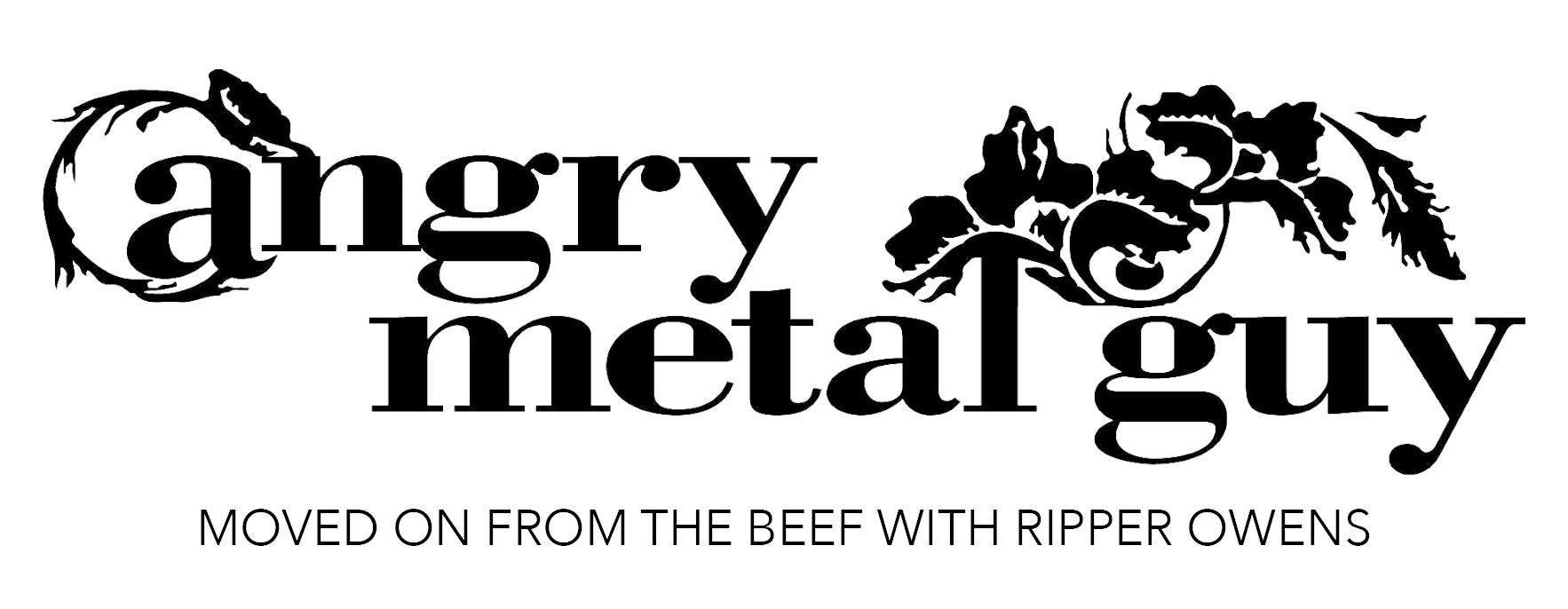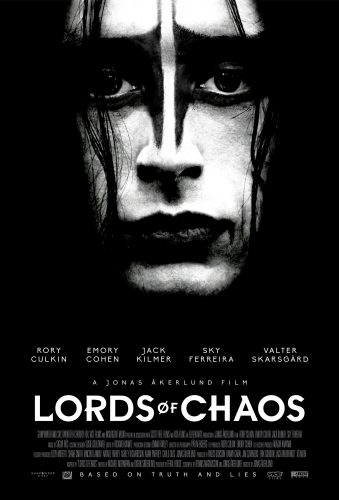 Author’s note: For reasons of not-enabling certain individuals unworthy of enabling, V**g V*k*rnes’s stage name has been redacted from this review. Instead, I have chosen to refer to him by his (absurd) present legal name, Louis Cachet. I have also chosen to not concern this review with the veracity of either the original book or this film; these concern me less than the approach to narrative and character.
Author’s note: For reasons of not-enabling certain individuals unworthy of enabling, V**g V*k*rnes’s stage name has been redacted from this review. Instead, I have chosen to refer to him by his (absurd) present legal name, Louis Cachet. I have also chosen to not concern this review with the veracity of either the original book or this film; these concern me less than the approach to narrative and character.
Lokasenna
Based on “truth, lies, and what actually happened,” Lords of Chaos paints the story of the life and times (and deaths) in the tale of Mayhem founder and black metal legend Euronymous. It’s an ugly story, as most of our readers know, but gripping all the same, and Jonas Åkerlund (ex-Bathory) and his team tell it deftly. Particular care is paid to theme and tone in their framing, but there are elements of the technical and narrative sides of filmmaking worth noting as well.
Though a music biopic in the most technical sense, Lords of Chaos exhibits an unusual level of craft in its attention to the tone of its storytelling; each act is clearly demarcated, punctuated by a death (Dead’s suicide, the murder of Magne Andreassen by Faust, and the murder of Euronymous by Louis Cachet, respectively). Each is in turn marked by a distinctive tone, each successively darker and grimmer. The first act features its share of somber moments, with Dead’s goading Euronymous to shoot him standing out strongest, but is overall rather madcap (as befits the self-serious absurdity of Second-Wave Black Metal). Conversely, as we dive into acts two and three and the Norwegian black metal scene’s ever-deepening obsession with the authenticity of their evil, levity grows far less frequent. The deaths, in particular, stand out sharply from the rest of the film. Each is presented with solemnity and gravitas in the camera staging and complete silence from the score. Dead’s suicide, in particular, is tragic, accompanied only by a voicemail from his father.
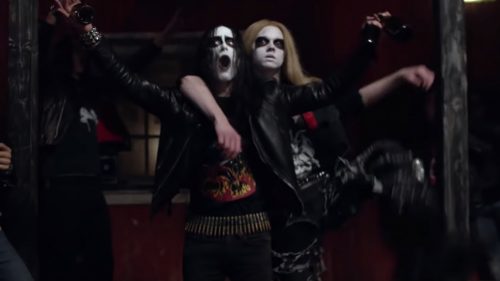
Further assisting all of the above are an impressive set of performances. Jack Kilmer brings a deeply unsettling whimsicality to Dead, while Rory Culkin’s Euronymous elicits incredible pathos as he fumbles through trying to bring his band and career to success even as he struggles with PTSD induced by Dead’s suicide, and even more as he is slain by Mssr. Cachet at the close of act three. The standout performance, however, is possibly Emory Cohen’s1 Cachet. The foul metamorphosis of the character from nervous fan to budding fascist to violent lunatic is nothing short of terrifying, and Cohen brings weight and intensity to every scene, even when he’s being roundly and justly mocked by the journalists of Bergens Tidende in one of my favorite scenes of the film2. While the performance verges on comically evil at times, it could equally be said that the man is comically evil, so this is less of a problem than I expected. Overall, the most consistent point the writing attempts to make is to bluntly remind the audience just how young these musicians were — they’re kids, still leaning on their parents for help and finding their way in the world, with all the foolish decisions that entail. These foolish decisions just happened to lead to horrific deaths.
Lords of Chaos is also surprisingly skilled from a technical perspective. The structural editing is sound overall, while the momentary editing is organically loose to allow the narrative beats and dialogue to breathe. Conversely, the editing shifts to choppy and frantic for the increasingly frequent horrific hallucinations and flashbacks of Dead as Euronymous’s untreated PTSD intensifies, carrying that progression to an even greater degree than Culkin’s straightforward performance. The cinematography (courtesy of frequent Åkerlund collaborator Pär Ekberg) and editing of these horror sub-scenes most clearly show Åkerlund’s background as a music video director, where quick cuts between clear and direct shots create the most impact. This combination is used to unearth Euronymous’s buried agony at his close friend’s sudden death, driving him to warp his image further and further to more opaquely mask it. While no Mad Max: Fury Road, the sound design is also excellent, with the featured music overwhelming especially during live and studio performances.
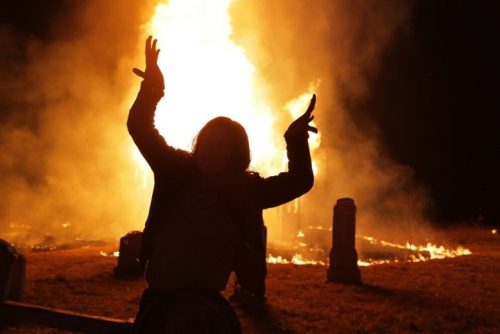
Lords of Chaos is far from a perfect film — it borders on unfortunately goofy at times (though some of this is inherited from the inherited melodrama of black metal itself), and I personally found Euronymous’s (possibly fictional?) love interest Ann-Marit to be wholly superfluous outside of being used to further dunk on Mssr. Cachet3. However, it’s a well-intentioned and movingly humanizing portrait of a lost legend of metal and is worth seeing for that alone. Jonas Åkerlund needs to make more movies; he’s pretty damn good at it.
L. Saunders
The long-awaited film adaptation of Michael Moynihan and Didrik Søderlind’s book, Lords of Chaos: The Bloody Rise of the Satanic Metal Underground, was perhaps always destined to disappoint metalheads eagerly awaiting a genuine film about the underground extreme metal culture and notorious events that occurred in Norway during the early ’90s. Of course, the grisly context and tales of drunken tomfoolery, church burning, suicide, and murder take precedence over the music and pivotal era of Norwegian black metal, spearheaded by the notorious Mayhem. Hardly surprising for a film aimed at branching out beyond a metal only audience, but it is still a tad disappointing.
Dripping with dollops of cheese, lame dialogue, and thinly portrayed characters, Lords of Chaos is tough to take seriously, despite the heady subject matter. Lords of Chaos feels rushed and glossed over, never providing any great insight or substance behind the events and black metal scene as a whole. The power struggle between Øystein Aarseth (aka Euronymous) and the controversial Varg, played by Rory Culkin and Emory Cohen respectively, isn’t as compelling or in-depth as it needed to be, while even the church burning acts fail to gain much traction. Meanwhile, several moments inspire bouts of eye rolling and laughter (such as the embarrassing “rip” on death metal and repetitive exclamation of being “True Norwegian black metal”).
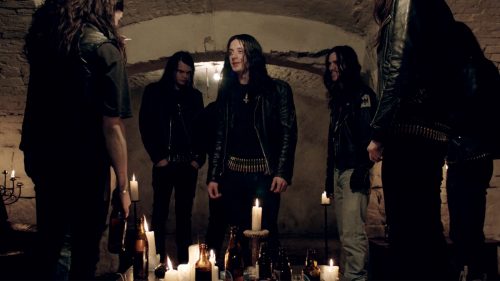
Yet despite my criticisms and an overall feeling that Lords of Chaos represents a missed opportunity, it’s not without its charms. Seeing an albeit skewed insight into the culture of extreme metal in a mainstream film is kind of cool in itself, while the solid direction, gritty violence and fascinating circumstances of the events that occurred are enough to maintain interest across the film’s duration. Unfortunately, the flaws are too notable, such as the dubious casting choices, loose plot and thin characterization, to heartily recommend as a film of any great quality. 2.5/5.0
Holdeneye
Although I’ve only really partaken deeply of black metal for the past year or so, I’ve been aware of the drama and intrigue surrounding its inception since watching Sam Dunn’s Metal: A Headbanger’s Journey documentary back in 2005. Even then, I thought that the story would make for a great movie plot, so I was pretty excited when I heard that such a film was being made. This excitement turned to disgust when I saw the trailer for the first time — the cheesy dialogue and Culkin-face made me think that Kevin McCallister’s immolation of Harry’s stocking cap in Home Alone would be more trve than anything found within this film.
But then I watched it. Lords of Chaos was filmed in such a way as to really play up the disturbing psychological background that led up to the creation of the genre. While the dialogue can certainly be cheesy at times (the way Euronymous continuously says “true Norwegian black metal” is super annoying and terribly untrve), in the larger context of the film, it works far better than the trailer led me to believe it would. I enjoyed that while the film certainly plays up the grisly aspects of the story, it still manages to paint the major players as essentially kids playing idealized roles. I’m guessing that a large majority of people who will see the film will know how the story ends going in, and that can make the final 30 minutes seem excruciatingly long as it could have been easily wrapped up in half that time.

Overall, I was certainly surprised at how little this sucked and how well it described the times, people, and places involved. While I’ve drawn the ire of Mrs. Holdeneye by forcing her to watch this with me, I can’t say that I regret spending two hours here. Definitely worth watching for fans of Mayhem and black metal in general, and I promise you’ll never look at chocolate milk the same way again. 2.5/5.0
